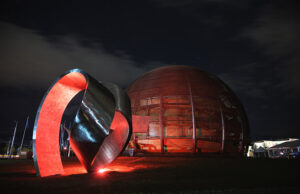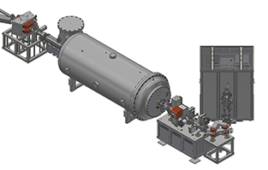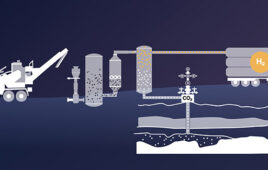ABB and CERN, the European Laboratory for Particle Physics, have identified significant energy-saving potential through a strategic research partnership focused on the cooling and ventilation system at one of the world’s leading laboratories for particle physics institutes in Geneva, Switzerland. The study included energy efficiency audits that helped to identify a savings potential of 17.4% across a fleet of 800 motors.

The research, conducted between 2022 and 2023, followed an agreement between ABB and CERN. This saw the partners developing a roadmap for reducing the energy consumption of the site’s cooling and ventilation system through data-driven energy efficiency audits. It has identified potential annual energy savings of up to 31 gigawatt-hours (GWh). If achieved, these savings could be enough to power more than 18,000 European households1 and avoid four kilotons of CO2 emissions2, the same as planting over 420,000 trees3.
Energy efficiency audits work by evaluating the performance and efficiency of motors based on their operational data. Audits help facilities like CERN to identify the most significant energy-saving opportunities across whole fleets of motors. CERN and ABB experts assessed data from motors in various cooling and ventilation applications. They combined data from multiple sources, including digitally connected motors, CERN’s SCADA system, and data gathered directly from their pumps, piping, and instrumentation. The system was analyzed to determine the most energy-efficient motors for upgrade.
“We are proud to cooperate with CERN and support its ambition to conduct physics research with a low-carbon footprint, by helping them to achieve more energy-efficient operations of their cooling and ventilation systems,” said Erich Labuda, president of the Motion Services division at ABB. “This research project represents another step in CERN’s energy efficiency journey. As an institution with a large installed base of motors, working with CERN is a great example of how we can support in making a big impact in improving energy efficiency as part of the transition to a low-carbon society.”
“The collaboration with ABB was set up to optimize the laboratory’s cooling and ventilation infrastructure to reduce its energy consumption and is in line with CERN’s commitment to minimize its environmental footprint as well as to share the findings publicly for the greater impact on society. It’s a great example of a collaboration where each side brings their own contribution to the table. CERN brings its large-scale infrastructure and ABB contributes with its technology and service expertise. We are very happy with the final result of this research project as we have exceeded our goal of identifying a 10-15% energy efficiency improvement,” said Giovanni Anelli, head of the Knowledge Transfer group at CERN.
“Cooling and ventilation systems are a fantastic first place to look for energy efficiency upgrades,” said Labuda. This is because they are often overdesigned, being specified to operate at a maximum load way above the average. In fact, we found one pump motor at CERN with an energy-saving potential of 64%. It is also important to not just evaluate motor efficiency, but the system as a whole – including the fans, condensers, and cooling towers. This holistic approach supports the improvement of CERN’s overall energy efficiency and reliability.”
CERN’s next step is to create a roadmap to upgrade the first motors to the solutions recommended for the energy efficiency audit: IE5-rated Synchronous Reluctance Motors (SynRM) operating with variable speed drives (VSDs). These motors will also be digitally connected, enabling condition monitoring solutions to accurately monitor their health and performance, ensuring maximum uptime.
Learn more about ABB’s Energy Efficiency and Circularity.





Tell Us What You Think!